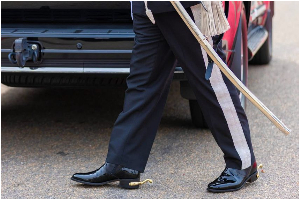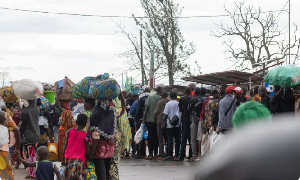As I listen to the debates and read comments and more literature on the manifestos of the various political parties and personalities engaged in Ghana’s 2012 elections, I become more convinced that the NPP has indeed succeeded in making education the front burner of discussions for the elections. Nana Addo, Dr. Kwesi Nduom, Dr. Abu Sakara and incumbent President, John Mahama are all promising to amend the current structure of our educational system.
My interest is however particularly drawn to what the NPP and NDC are saying about their offer on education. President Mahama says the problem with our education has to do with access and hence his provision of additional schools will resolve the problem. He further promises to address the accessibility problem at the SHS level by building 200 new schools in the next four years at the end of which Ghana will have enough school spaces to absorb all JHS students. According to President Mahama, his infrastructural development programme will be completed in 2016 and from then on, there will be enough room to absorb all JHS students thereby solving the accessibility problem he identifies as primary and then Ghana will be ready to implement a free SHS which he identifies as a secondary problem involving affordability.
From this same camp of the NDC comes another idea from current Minister of Education Lee Ocran. As far as Lee Ocran is concerned, a free SHS in Ghana is not feasible. He puts a price tag of a minimum GHC1.4 billion annually on such a project. He however does not give a breakdown of the components that will make up this cost. Does this include infrastructural expansion and other related fees or just the fees? Then he says that free SHS is only possible in Ghana in 20 years’ time, that is, 2032!
Nana Akufo–Addo, on the other hand, is promising to redefine basic education in Ghana. He promises to extend basic education from JHS to SHS such that every Ghanaian child of school going age would by design have a minimum education of SHS. He identifies affordability and accessibility as problems but insists that it is possible to begin the free SHS in the first term of the 2013/2014 academic year. Akufo-Addo further insists that capital and recurrent expansion in infrastructure can begin early in 2013. Interestingly, Akufo-Addo also proposes to have his free SHS program roll out fully in place by 2016, the same year that President Mahama proposes Ghana will be ready to implement free SHS.
The problems and solutions as identified by Akufo-Addo are thus not mutually exclusive; we can have both expansion in facilities and free SHS side by side. Obviously, there is an admission by all these parties that the quality and structure of our education from the basic to the SHS levels are of the essence.
While all the parties agree to the need to reform the educational system, there are still a couple of pessimists mainly and seemingly from within the NDC who are obstinate that free SHS is not a possibility. And mostly, their argument is on the issue of cost. I beg to differ. What is it about cost that makes this fundamentally necessary reform in our educational sector not feasible? Even the price tag of GHC1.4 billion provided by Lee Ocran which he presented to be too huge, unbearable and unaffordable by the economy is a fallacy! Assuming Lee Ocran’s figures are correct, what is the size of Ghana’s economy that such an important expenditure will fail to bear? According to the Ministry of Finance’s budget for 2012, Ghana’s economy currently is valued at GHC69 billion. Indeed, Lee Ocran’s GHC1.4 billion is only two percent of Ghana’s current GDP. So why is it difficult or impossible to take this bold step to accommodate the supposedly huge cost if indeed we all agree that reforming our educational structure is indeed important?
Leadership will always be about choices and priorities. As a country, we found the need for NHIS and hence created a funding source through VAT; in addressing the fundamental expansion needs in our educational institutions, we provided the GetFund again through VAT, we also created ‘Talktax’ to help fund NYEP.
Similarly, we will have to make a choice on our education. And for the skeptics, have they attempted a guess at costing the huge dropout rates to our economy and society? In ten years, we will be creating a widening pool of two million unskilled, illiterate, unemployable persons roaming the streets of Ghana. And Ghana would not be too far from the conditions that created room for the ‘Arab Spring.’
We cannot allow ourselves to be misguided by the few skeptics who believe that simply because government will be wholly funding a new basic education that includes SHS means that quality will be sacrificed. Hell no! It certainly is not the case! Akufo-Addo proposes a comprehensive integrated policy to address the current status of our educational structure. Free SHS is just the tag but it comes with recurrent and capital infrastructural expansions, increased enrolment, quality and increased number of teachers.
I do not intend to ridicule all the other propositions but I believe this policy when implemented will provide for Ghana a very competent workforce in the next two decades that can harness the exploits of the 500-million people or market of West Africa. And it all starts with quality, accessible and affordable education!
The Author is the Head of Research of Danquah Institute.
Opinions of Monday, 8 October 2012
Columnist: Nana Attobrah Quaicoe














